Preparing for a successful transition to a pre-school environment, be that daycare, pre-kindy or kindy, is important for our little ones. Considering the skill expectations for a smooth and successful transition are important, and include social, language, play, physical and self-care abilities. With a little bit of active planning, parents can really help to nurture preschool readiness.
Here are some skills to work on before your child starts pre-school:
Independence
Support your child to develop independence in self-care tasks such as dressing, toileting, eating, getting ready to go out of the house and medications.
Even if your child is too young to manage their own medication, they can play a part in supporting themselves with their medication, especially with their food and lunch boxes. A great idea is to start to use a lunchbox map to manage enzyme doses which they can use alongside their educator to navigate medications.
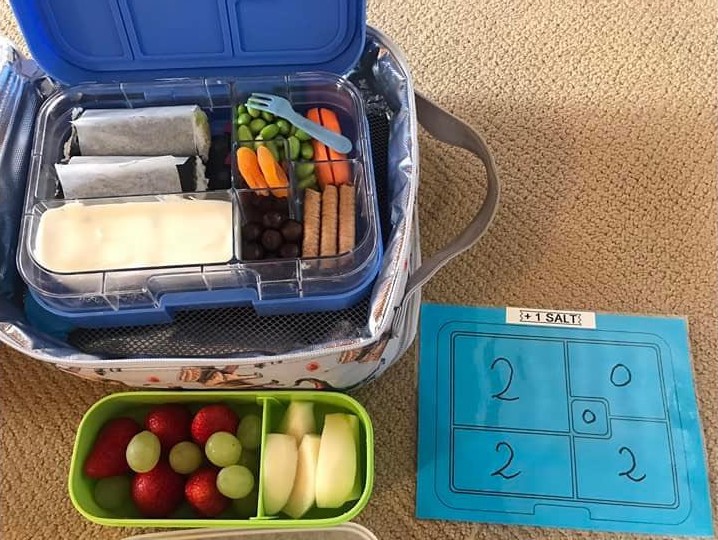
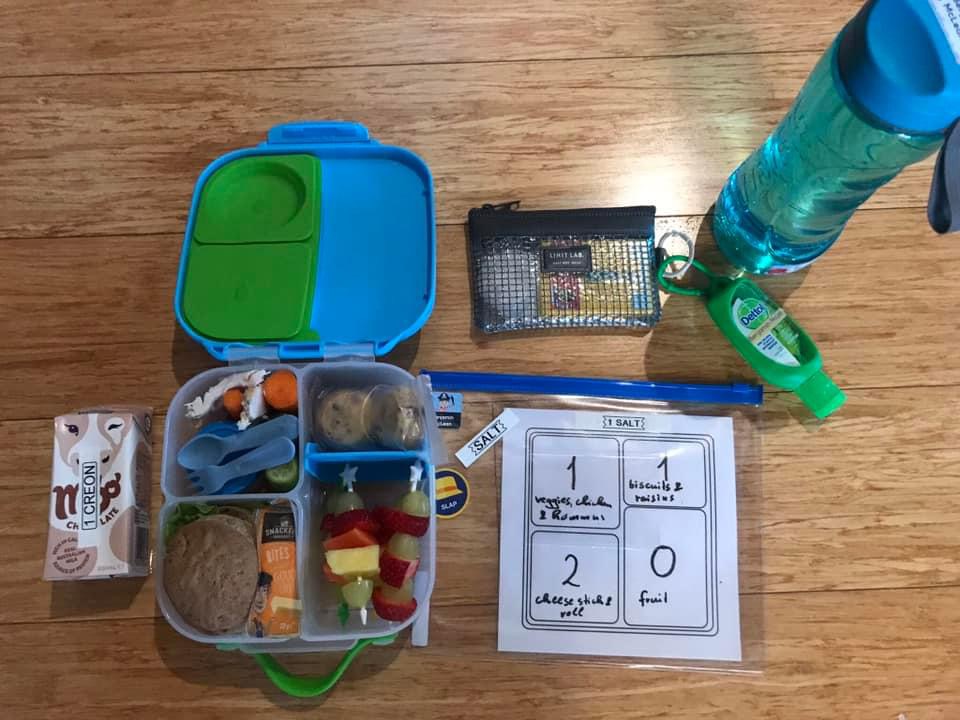
CF Education
Reading the CFWA book “My ABCF” with your child regularly, before they head into their new pre-school setting, would be beneficial. They can then take this book into their pre-school and “show and tell” to their peers, with the help of their educators. Allowing the child ownership over telling their story empowers them to feel confident in themselves and teaches early language around explaining their CF.
You might also like to consider speaking to our CF education team for further support with day care/school education.
Routines of the day
Develop some visual strategies at home (such as picture schedules) or start to verbalise plans for the day with your child to help them understand daily routines and expectations. Introduce aspects of pre-school such as packing their bag or having enzymes with their lunch box.
Here is an example of some common daily activities for a child with CF.
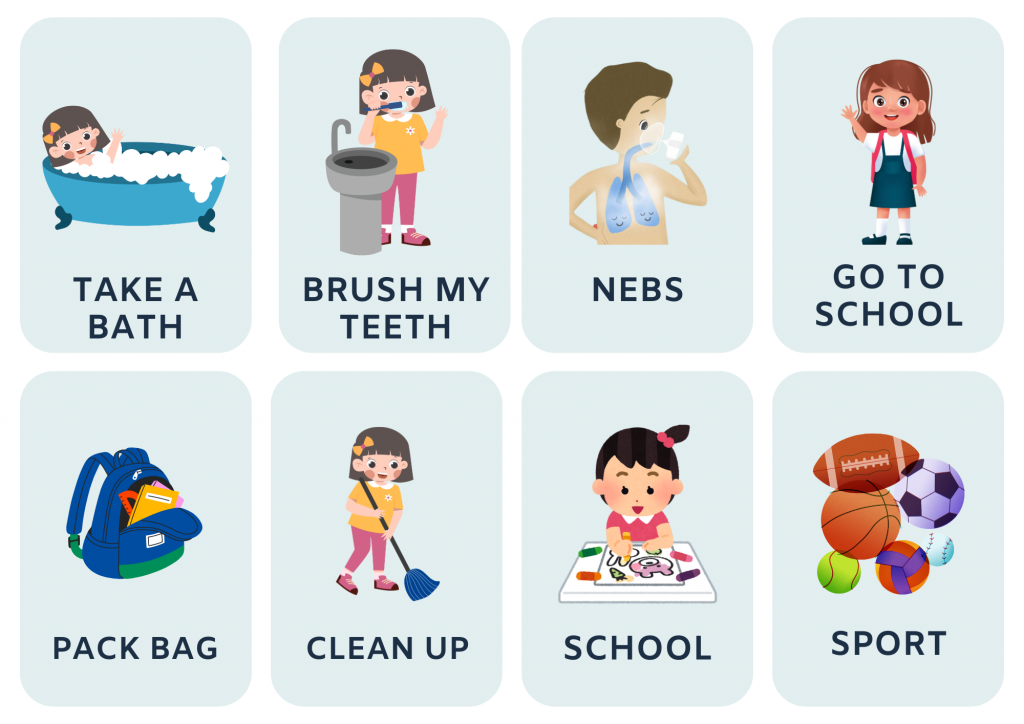
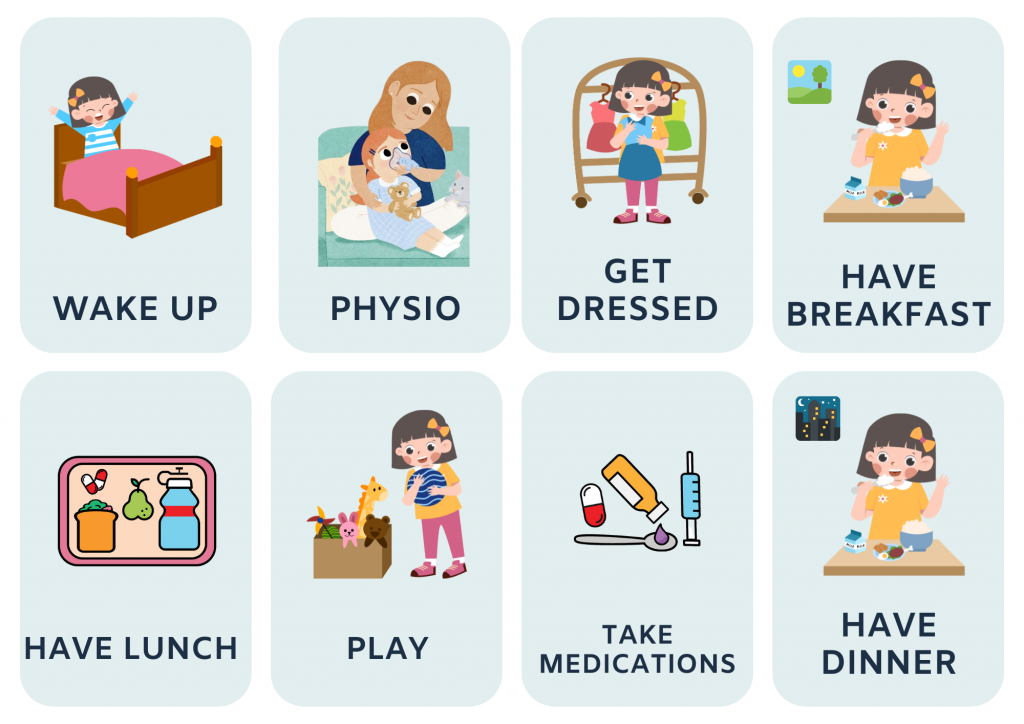
Print this template and cut and stick your child’s daily activities as needed, to give them a visual understanding of the day ahead. Click here to download a printable version of the above.
Giving 2-3 step instructions is great for preparing them to follow instructions in preschool, and develops language and planning skills.
Fine Motor Skills
Offering regular opportunities at home for your child to use crayons, chalks, pencils and safe toddler scissors is a great way to prepare the child for what will be a large part of the activities undertaken at preschool. If your child is not keen to sit at a table for fine motor work, find other ways to develop these skills such as hand painting at an easel, big chalk drawing outside, beading, LEGO, cutting and pasting, play doh, dot to dots and mazes. The goal is to strengthen their little hands and develop the idea of using their hands for precision.
Physical skills
Encourage your child to move as much as possible, to develop their body awareness and strength. Developing core strength in young children is important and is achieved by them climbing, balancing, throwing, catching, hopping, and generally moving their little bodies. Playing animal walk games with a child is a fun way to develop whole body strength.
Animal Walk Cards
These cards aim to help build your child’s arm, upper body and core strength in a fun way! It also helps to support shoulder and wrist stability. These skills are so important for developing their fine motor skills. Pick your daily favourites and do a few animal walks together each day. Kids learn best through having fun with you.
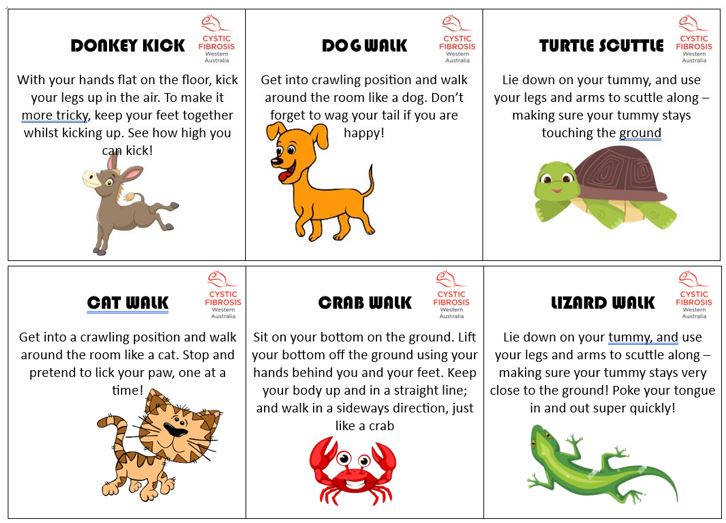
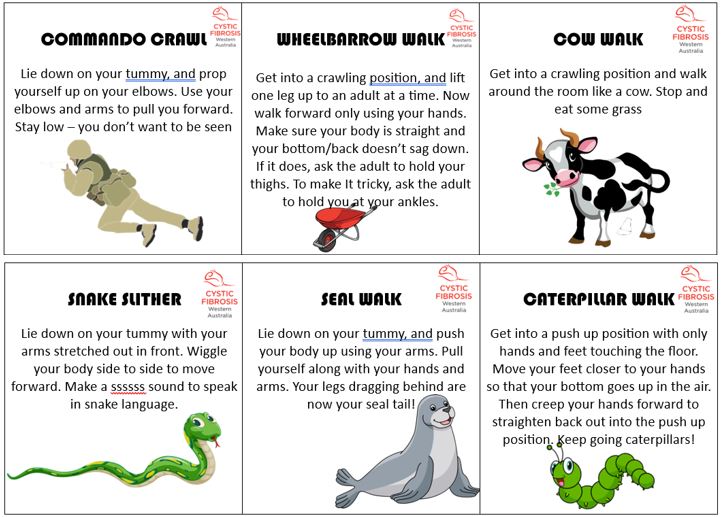
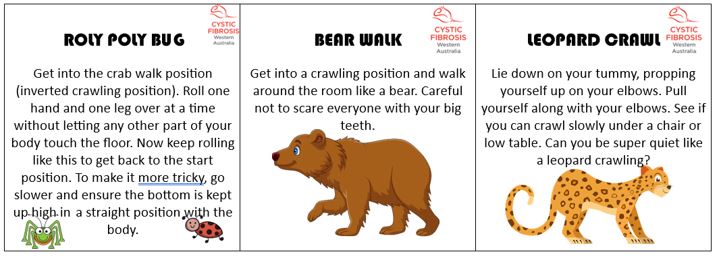
Emotional development
This is an area of learning that will be evolving throughout your child’s development journey, but for a preschooler it is useful to be able to identify, understand and regulate emotions, and understand ways to express emotions. Talking about feelings with your child, comment on different emotions you are feeling, or see in them. Reading books about emotions and singing songs about emotions is a great way to teach emotions (“if you’re happy and you know it…”, “How do you feel today?..”).
Social skills
Providing opportunities for your child to explore different styles of play, to learn to take turns and share toys. Providing opportunity for your child to engage with other children of similar age and support them to feel comfortable meeting new people and playing with others. As a parent, how you feel about taking your child to new environments is important to reflect on. Having a child with CF can sometimes challenge this a little; as we aim to keep our child as safe as possible; but modelling positive, comfortable behaviour to new environments will allow your child to feel safe and secure as they navigate their new environments too.
Starting at a preschool is an exciting and sometimes unsettling time for all! Hopefully reflecting on developing some key skills in your child at home will assist them in settling in to their new preschool setting, and will allow them to thrive.
For further support with preparing your child for day care/school, get in touch with our Education Team on services@cfwa.org.au